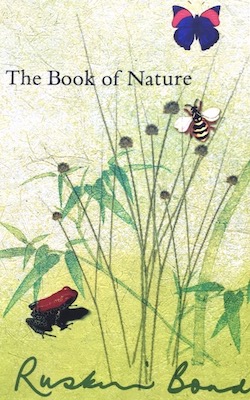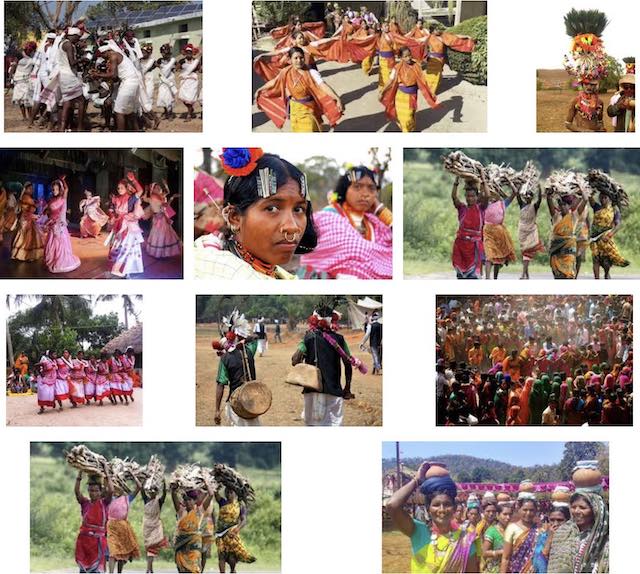“Today, bamboo is liberated,” proclaimed Union Minister of State for Environment and Forests Jairam Ramesh at a function here on Wednesday, where he handed over to Mendha’s community leader Devaji Tofa a transit pass that would allow the sale and transportation of bamboo within the community.
Ever since bamboo was given the status of a minor forest produce (MFP) in the Forest Rights Act, 2006 (Scheduled Tribes and Traditional Forest Dwellers [Recognition of Forest Rights] Act), there has been a campaign for its selling rights — something which the Forest Department has jealously guarded. The Act, which seeks to redress a historical injustice to Adivasis, apart from entitling them to land ownership, also gives communities rights to collect, use and sell bamboo as an MFP. […]
Mr. Ramesh said forest officers alone could not protect forest areas; local participation was essential. “About 25 crore people live off the forests, we cannot keep them out.” He also called for a change in the mental attitude towards adivasis and forest-dwellers.The adivasi is not the enemy of the forests, he said.
Mr. Ramesh commended Maharashtra Chief Minister Prithviraj Chavan for taking the brave step of vesting power with Gram Sabhas. Of the 2,800 claims for community forest rights made in the country, 691 were approved for villagers in Maharashtra. He advocated a minimum support price for minor forest produce and said at least 12 items, including bamboo, mahua, tendu, and lac, could be considered for this.
A special case would be made for the Gadchiroli and Gondia districts and local development work for school, health sub-centres, government buildings — which involved five hectares of forest area — could be taken up without clearance from the Centre. It also decided that Section 68 of the Indian Forest Act, 1927, would be amended so that no cases could be filed against adivasis without the approval of the Gram Sabha. […]
He hoped that the Forest Department and villagers would become equal partners in sustainable forest management. […]
Source: “Bamboo is liberated, says Jairam Ramesh” by Meena Menon, 29 April 2011
Address : https://www.thehindu.com/news/national/article1818936.ece
Date Visited: Fri Sep 02 2011 22:16:01 GMT+0200 (CEST)
PUNE: Mendha Lekha in Gadchiroli district will become the first village in the country to exercise its community right to harvest bamboo under the Forest Rights Act. […]
The bamboo was earlier treated as a timber under provisions of the Indian Forest Act, though technically it is a grass. This gave the forest department the exclusive right to harvest it and exercise tight control on the lucrative multi-crore trade in bamboo. However, the Forest Rights Act changed this by categorising bamboo as a minor forest produce that can be sold and harvested by local communities using government transit passes.
Source: “Mendha Lekha is first village to exercise right to harvest bamboo” by Dipannita Das, Times Of India, Apr 23, 2011
Address : http://articles.timesofindia.indiatimes.com/2011-04-23/pune/29466126_1_forest-rights-act-forest-bureaucracy-minor-forest
Date Visited: Fri Sep 02 2011 22:10:56 GMT+0200 (CEST)
The foremost example of self-governance comes from a village in Gadchiroli district of Maharashtra, Mendha (Lekha). With a forest area of 1800 hectares, it has a population not more than 450 people of the Gond tribe. Yet, they made it amply clear that representative democracy handed over to them by a political structure far removed from their own tribal customs would not work for them. “Before Independence, the nation was under the British rule, the tribes were not. Yet, the rules thereafter meant getting permission for every action undertaken in our own forest land which was termed as public property. We were of the opinion that the government should handle the papers of the forest land, while we look after the forest ourselves,” says Devaji Toffa, one of the prime members of the village who brought about a revival of tribal rights to forests.
Source: Mendha Lekha – Gadchiroli « Conflict reportage from Vidarbha
Address : https://conflictreporting.wordpress.com/category/mendha-lekha-gadchiroli/
Date Visited: 17 2022

“Nature is a reward in itself. It is there, to be understood, to be lived and loved. And in its way it gives us everything – the bounty and goodness of the earth, the sea, the sky. Food, water, the air we breathe. All the things we take for granted. […] Nature gives. And takes away. And gives again.” – Ruskin Bond in The Book of Nature | Find this book and related publications for study and leisure >>
Up-to-date reports by Indian experts and journalists
Search tips
Combine the name of any particular state, language or region with that of any tribal (Adivasi) community.
Add keywords of special interest (music, poetry, dance just as health, sacred grove and biodiversity); learn about the rights of Scheduled Tribes such as the “Forest Rights Act” (FRA); and the United Nations “Declaration on the Rights of Indigenous Peoples”, “Universal Declaration of Human Rights”, “women’s rights”, or “children’s right to education”.
Ask a question that includes “tribal” or “Adivasi”, for instance: “Adivasi way of life better?” (or “tribal way of life worse?”)
Specify any particular issue or news item (biodiversity, bonded labour and human trafficking, climate change, ecology, economic development, ethnobotany, ethnomedicine, global warming, hunter-gatherers in a particular region or state, prevention of rural poverty, water access).
For official figures include “scheduled tribe ST” along with a union state or region: e.g. “Chhattisgarh ST community”, “Himalayan tribe”, “Scheduled tribe Tamil Nadu census”, “ST Kerala census”, “Particularly Vulnerable Tribal Group Jharkhand”, “PVTG Rajasthan”, “Adivasi ST Kerala”, “Adibasi ST West Bengal” etc.
In case the Google Custom Search window is not displayed here try the following: (1) toggle between “Reader” and regular viewing; (2) in your browser’s Security settings select “Enable JavaScript” | More tips >>
Note: hyperlinks and quotes are meant for fact-checking and information purposes only | Disclaimer >>
List of websites covered by this Google custom search engine
Academia.edu (platform for academics to share research papers) – www.academia.edu
Archive.org – https://archive.org
Centre for Science and Environment – https://www.cseindia.org
Current Conservation – https://www.currentconservation.org
Development and Cooperation (D+C) https://www.dandc.eu
Down To Earth (India) – www.downtoearth.org.in
India Environment Portal – www.indiaenvironmentportal.org.in
Harnessing Nature Magazine – https://harnessingnature.online
Mongabay-India – https://india.mongabay.com
M S Swaminathan Research Foundation – www.mssrf.org
Navdanya (protecting India’s biodiversity based food heritage) – https://navdanya.org
Third World Network (Penang, Malaysia) – https://twn.my
The Shola Trust (nature conservation in the Nilgiri region) – www.thesholatrust.org

Indian online periodicals and platforms | Images view >>
~ ~ ~
Personalize your CustomSearch by combining other search words >>
(e.g. name of a tribal community and region, a craft, or dance and puppetry)
Research the above issues with the help of Shodhganga: A reservoir of theses from universities all over India, made available under Open Access >>
Note: hyperlinks and quotes are meant for fact-checking and information purposes only | Disclaimer >>
See also
Forest Rights Act (FRA) | Legal rights over forest land
Health and nutrition | Recommendations by the Expert Committee
People’s Archive of Rural India (PARI) | RuralIndiaOnline.org
States along the Narmada river’s course (source to Arabian Sea):
Madhya Pradesh | Maharashtra | Gujarat